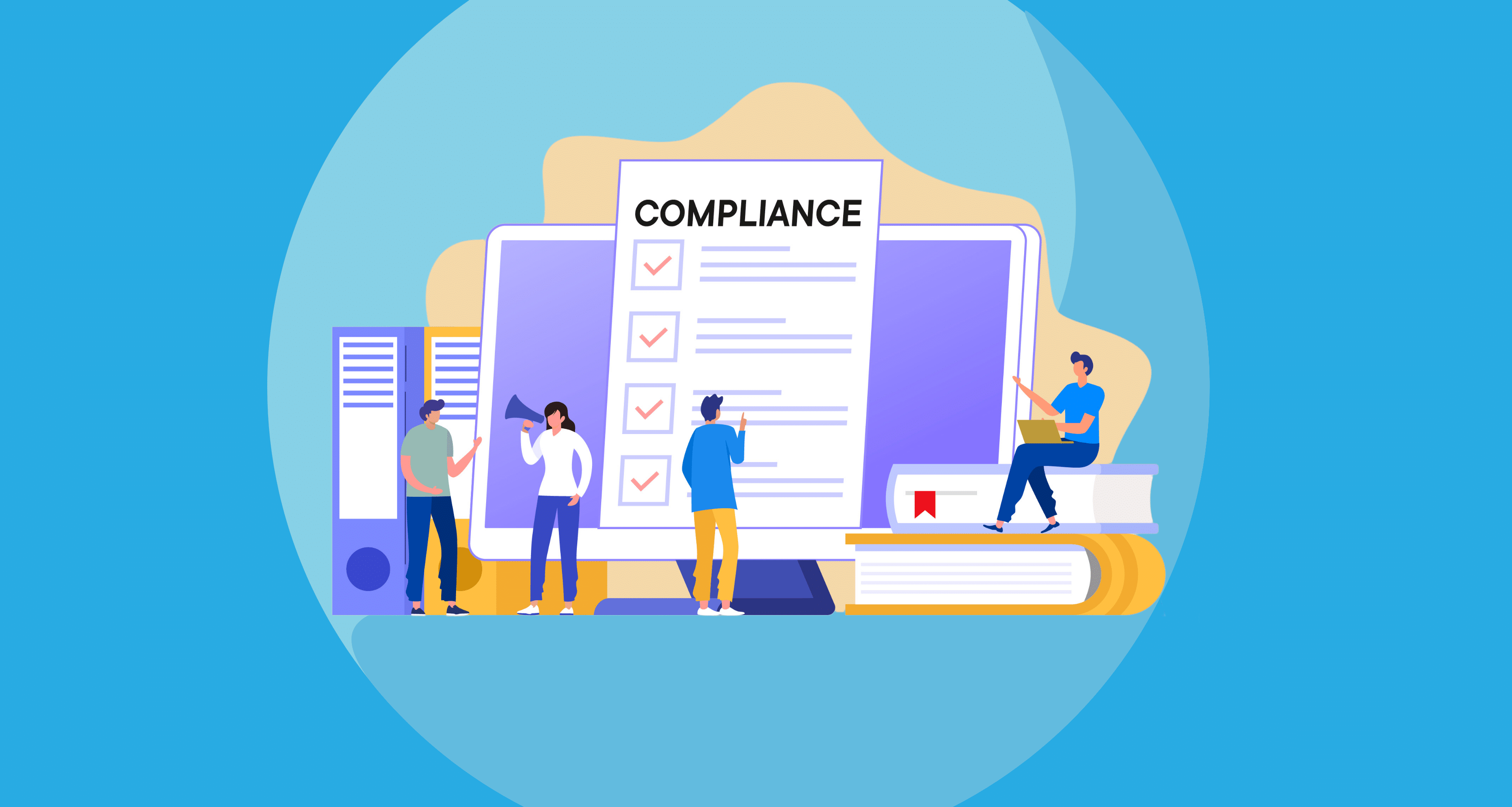
Compliance in healthcare is a fundamental aspect of ensuring the safety, privacy, and security of patients’ personal information and overall well-being. With regulations in place such as HIPAA (Health Insurance Portability and Accountability Act), OSHA (Occupational Safety and Health Act), and SOC 2 (Service Organization Control).
Organizations are required to develop a comprehensive compliance plan in healthcare that adheres to these guidelines. We will look at the significance of compliance in healthcare, the benefits of a compliance program in healthcare, and the essential components of an effective compliance plan.
Looking Behind the Lens: Taking a Deeper Look into the Regulations
1. Safeguarding Patient Information with HIPAA Compliance
Under the provisions of HIPAA, healthcare organizations are mandated to protect patients’ protected health information (PHI).
This includes:
- Maintaining Strict Confidentiality in Handling Patient Records
- Ensuring Secure Storage & Transmission of Data
- Obtaining Consent Before Disclosing PHI
- Implementing Robust Data Breach Prevention Measures
By building a culture of compliance in healthcare around HIPAA regulations, organizations can instill trust among their patients, while mitigating legal risks associated with non-compliance.
2. Promoting Employee Safety Through OSHA Compliance
OSHA sets forth stringent standards to ensure employee safety within healthcare settings. These standards cover various aspects, including:
- Occupational Exposure to Hazardous Substances
- Proper Training on the Use of Personal Protective Equipment (PPE)
- Implementation of Infection Control Protocols
- Maintenance of Emergency Response Plans
Adhering to OSHA guidelines not only protects employees from harm but also minimizes workplace accidents or injuries that could impact patient care.
3. Ensuring Data Security with SOC 2 Compliance
In our ever-evolving digital age, protecting sensitive information from cyber threats is paramount. SOC 2 compliance focuses on evaluating service organizations’ systems and controls related to:
- Security
- Availability
- Processing Integrity
- Confidentiality
- Privacy
By complying with the SOC 2 framework, healthcare organizations can demonstrate their commitment to safeguarding patient information from unauthorized access and disclosure, data breaches, and other security risks.
Benefits of a Compliance Program in Healthcare
Implementing a comprehensive compliance program in healthcare offers several significant benefits for both patients and organizations.
1. Enhanced Patient Trust & Privacy
A robust compliance program ensures that PHI is handled with the utmost care and confidentiality. By safeguarding personal data, healthcare professionals foster patient trust, integral to maintaining strong doctor-patient relationships. Patients can feel confident that their sensitive information will not be compromised or misused, increasing satisfaction and loyalty.
2. Mitigation of Legal Risks
Non-compliance with healthcare regulations can result in severe consequences, including:
- Fines
- Legal Penalties
- Damage to Reputation
- Loss of Business
Implementing a compliance program in healthcare helps organizations stay on top of evolving regulatory requirements, reducing the likelihood of violations. By proactively addressing compliance issues, entities can minimize legal risks and protect themselves from potential lawsuits or government investigations.
3. Improved Operational Efficiency
Effective compliance programs in healthcare promote streamlined processes within organizations. By establishing clear policies and procedures, staff members are better equipped to understand their roles and responsibilities concerning compliance matters.
This clarity leads to improved efficiency in tasks such as:
- Record-Keeping
- Reporting Incidents
- Training Employees
- Managing Audits
- Implementing Corrective Actions
Essential Components of an Effective Compliance Plan in Healthcare
To develop an effective compliance plan in healthcare, organizations should consider incorporating the following components.
1. Policies & Procedures
Clearly defined policies and procedures outlining expectations regarding HIPAA Privacy Rules, OSHA Safety Protocols, SOC 2 Controls, etc., serve as a foundation for compliance efforts.
2. Training & Education
Regular training sessions ensure that employees are knowledgeable about relevant regulations and understand how they apply to their roles and responsibilities.
3. Risk Assessment
Conducting periodic risk assessments helps identify vulnerabilities within systems or processes that may expose the organization to non-compliance risks.
4. Incident Reporting & Response
Establishing a system for reporting incidents or violations allows organizations to address issues promptly, implement corrective measures, and prevent similar occurrences.
5. Auditing & Monitoring
Regular internal audits and monitoring activities enable healthcare organizations to assess compliance program effectiveness, identify areas for improvement, and ensure ongoing adherence to regulations.
Compliance Plan in Healthcare: Compliancy Group’s Role
Compliancy Group is a leading organization that exemplifies the significance of compliance in healthcare, particularly with regard to HIPAA, OSHA, and SOC 2. By being compliant with these regulations, healthcare entities can ensure:
- Protection of Data Privacy
- Maintain a Safe Working Environment
- Demonstrate Commitment to Data Security
Compliancy Group provides a comprehensive solution that includes tools and guidance to streamline compliance processes, reduce risks, and safeguard sensitive information. Our emphasis on compliance highlights our critical role in fostering trust between healthcare professionals and their clients.









